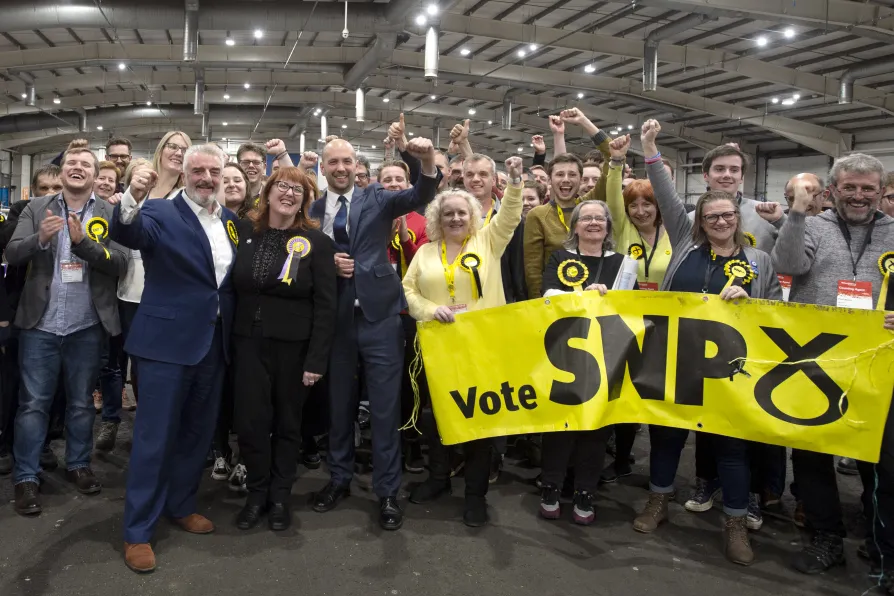The PM says Mandelson 'betrayed our values' – but ministers and advisers flock to line their pockets with corporate cash, says SOLOMON HUGHES
Meanwhile in Scotland … it’s still 2015
The general election was deja vu all over again north of the border, writes STEPHEN LOW

 SNP candidates and supporters celebrate at the end of the night at the Royal Highland Centre, Edinburgh
SNP candidates and supporters celebrate at the end of the night at the Royal Highland Centre, Edinburgh
FOR Scottish Labour activists there was a hideous sense of deja vu as we watched the SNP tide flood across the country.
It was 2015 all over again — Labour having just a single seat and the people of East Dunbartonshire returning Jo Swinson to the private sector again.
2015 — Jo Swinson apart — wasn’t any fun either. That’s not to say the situation is lacking in irony. Indeed, it abounds with it.
Similar stories

With ‘Your Party’ holding its founding conference in Liverpool this weekend, JEREMY CORBYN speaks to Morning Star editor Ben Chacko about its potential, its priorities — and a few of its controversies too

From Labour MPs obsessing over Easter egg shapes to SNP ministers celebrating pay rises while marking zoo animals’ arrivals, Scottish politics is really deteriorating, says COLL McCAIL

While VINCE MILLS laments the resignation of Neil Findlay from Scottish Labour, he explains why he won’t be joining him outside the party in the ongoing struggle for a socialist future

VINCE MILLS looks at how UK Labour’s backpedalling on policy has left Scottish Labour with nothing to offer its own electorate










